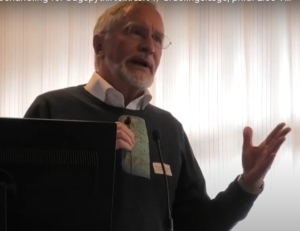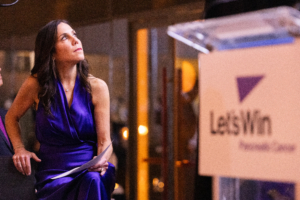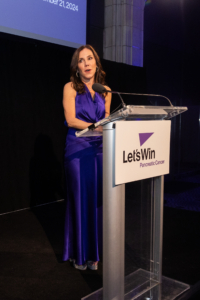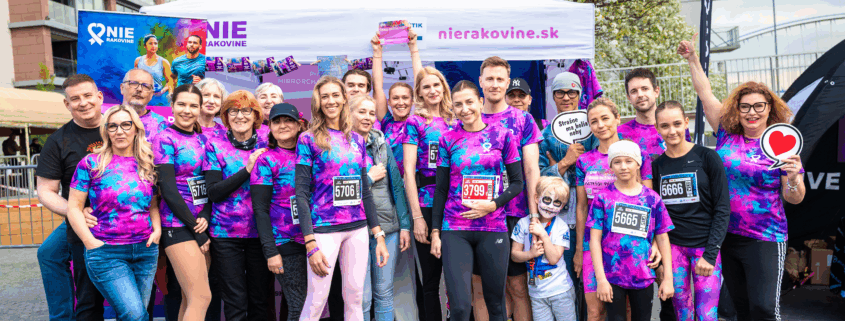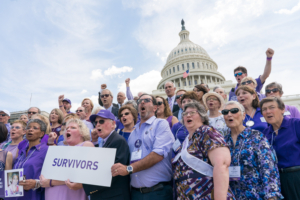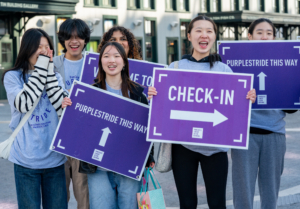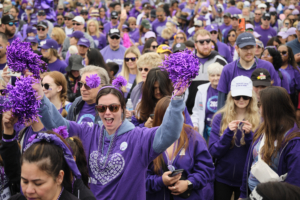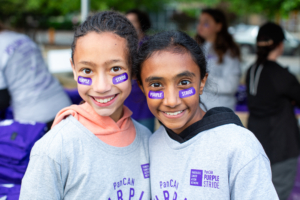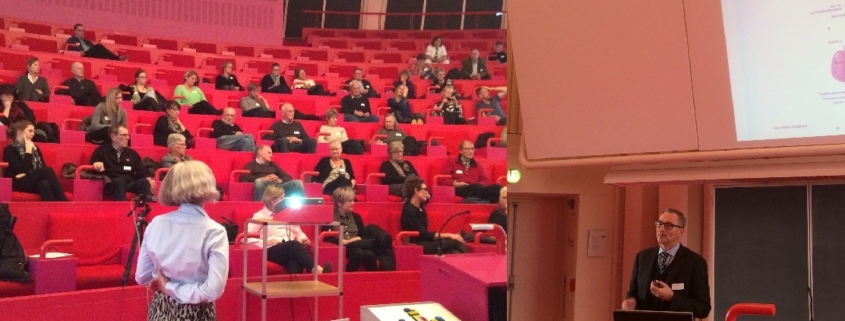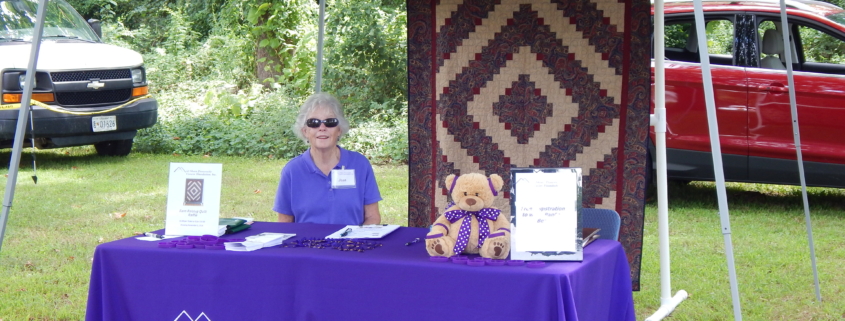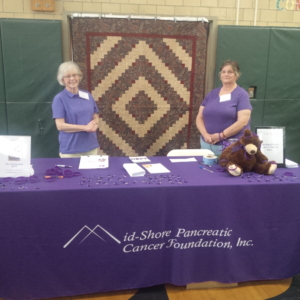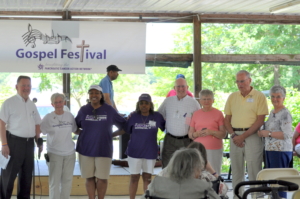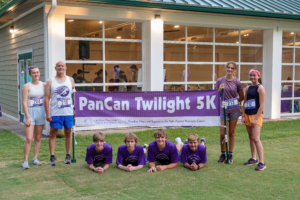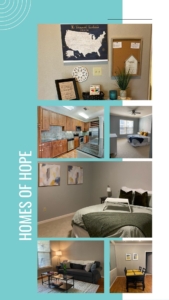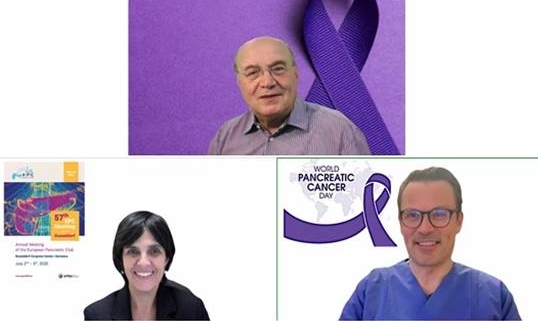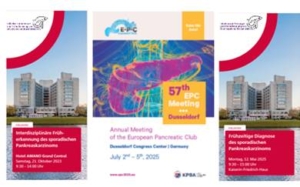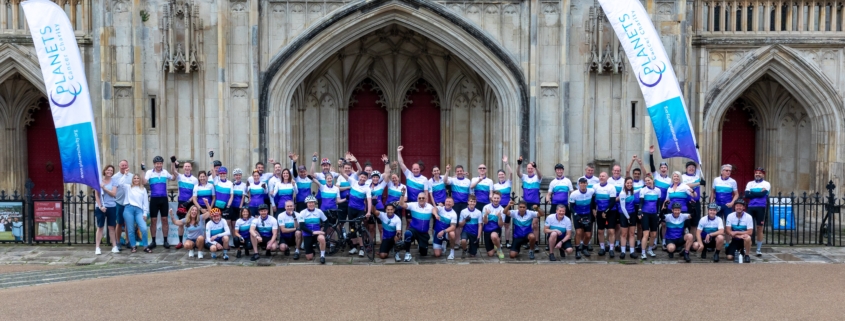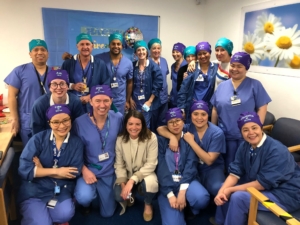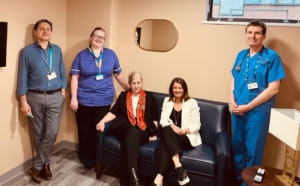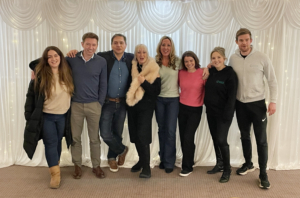Our Story
In May 2015, 75 patients and relatives met with surgeons and oncologists at Odense University Hospital for a day-long conference on the consequences of being diagnosed with pancreatic cancer, and the complex problems related to life with chemotherapy and a Whipple operation. The conference had been convened on the initiative of two patients, Niels Erik Olesen and Inger Marie Amdi, both of whom unfortunately have since passed away, with the support of oncologists at Herlev University Hospital in Copenhagen, and surgeons at Odense University Hospital, sponsored by the Danish Cancer Society, one of the most influential NGO’s in Denmark. A few weeks after the conference, a small group of patients and relatives gathered at the headquarters of the Danish Cancer Society to initiate the formation of a nationwide network of pancreatic cancer patients and their relatives. They called this new network “Pancreasnetvaerket i Danmark.” The first major activity of the network was a doctor and patient conference at erlev University Hospital in Copenhagen on the first World Pancreatic Cancer Day, in November 2015. The conference was a great success, and has become a traditional event of the Danish organization on the annual World Pancreatic Cancer Day ever since. In May 2016, Pancreasnetvaerket i Danmark was represented at the founding conference of the World Pancreatic Cancer Coalition in Orlando, Florida. And finally, in the spring of 2020, after five years of organizing as an informal network, Pancreasnetvaerket was able to establish itself as a formal nationwide organization.
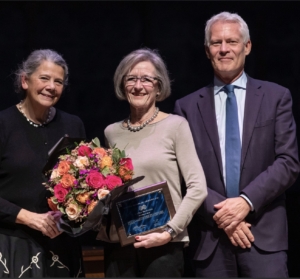
From the outset, Pancreasnetvaerket understood that its main purpose was to render support, comfort and advice to fellow pancreatic cancer patients across the country. Most of them had experienced the horrifying feeling of being totally alone in a new and scary world after being confronted with the diagnosis of pancreatic cancer and undergoing chemotherapy, or perhaps the colossal Whipple surgical procedure. Initially, the Danish Cancer Society allowed them to establish two groups for patients with pancreatic cancer on their Cancerforum, a private internet discussion forum for cancer patients and their relatives. This made the formation of a rudimentary network of fellow patients possible.
But it soon became clear, that they somehow needed to meet face to face, and after a couple of small local meetings in Copenhagen, the breakthrough came with the aforementioned conference at Odense University Hospital in May 2015. That conference provided a format that could fulfill an important double purpose. Presentations by leading Danish surgeons and oncologists would give them insight into the latest research developments, and the newest progress in diagnosis and treatment, in other words, give them hope. At the same time, the conference would also provide patients and relatives with an opportunity to meet and exchange their experience, problems and solutions with others in the same situation as themselves. Nobody should ever again feel alone in this strange and scary world of pancreatic cancer. So, this has been the main activity of Pancreasnetvaerket in Denmark for almost 10 years now: rendering support and comfort to fellow patients and their spouses and families over the phone and on private fora on the internet, and arranging three to four conferences a year for patients and doctors, primarily at university hospitals that are specialized in treating patients with pancreatic cancer. In this endeavor, they have received full and enthusiastic support from the medical community. Surgeons, oncologists, radiologists and nurses, are all eager to participate in their events, and by now, they know almost everyone who is involved in treating pancreatic cancer in the small Kingdom of Denmark.
For a small organization like theirs, it is a blessing that they need not spend their time, effort and limited resources on fundraising. Laws and regulations put strict limits on how much the medical and pharmaceutical industries are allowed to finance patient organizations. This is to prevent such organizations from becoming advocates for special commercial interests. Instead, large NGO’s like the Danish Cancer Society are allowed to pick up the tab, with no strings attached. Thus, their budget for conferences, meetings and travel expenses reaches far beyond what membership dues and private donations otherwise would allow. Likewise, it makes no sense for them to get involved in fundraising for specific pancreatic cancer research projects, like many of their fellow patient organizations in the U.S. nevertheless, their tiny organization does play a pivotal role in pancreatic cancer research in Denmark. When doctors and researchers at the Danish hospitals and universities seek funding for new studies from public and private financial sources, documentation of expected benefits for the related patient group is often a standard requirement. For that purpose, their organization receives numerous requests for letters of recommendation for new research projects every year. And over the years, they have gained quite a reputation for delivering well-formulated and convincing recommendations of pancreatic cancer studies and research projects.
In a country with a comprehensive public healthcare system, the playing field for a patient organization is somewhat different than the one facing similar organizations in the U.S. The public health structure of everything from primary care physicians, to university hospitals, and national planing of all major healthcare programs and clinical procedures, offers unique opportunities for patient organizations to gain influence and to sit at the table when decisions are made. A couple of years ago, Pancreasnetvaerket was invited to have a seat on the steering committee of the Danish Pancreatic Cancer Group, DPCG, the professional society of the surgeons, oncologists, radiologists and pathologists involved in treating pancreatic cancer. Likewise, the Danish Health Authority invited them to sit on the commission for the revision of the clinical guidelines for the treatment of pancreatic cancer, and presently, while the Danish government is preparing to present to the parliament the Fifth National Cancer Plan, they were invited to attend an early planning session, and to submit written testimony.
A few years ago, when Denmark decided to establish a National Genome Bank, NGB, they were invited to join the Ethics Committee for the National Plan for the Development of Personal Medicine, as a part of the preparation for the NGB. And when the NGB went in operation two years ago, pancreatic cancer was included among the initial limited list of diseases with access to full genome sequencing. Representing a small, but significant group of cancer patients, gives them political clout somewhat stronger than one would expect. Politicians listen when they speak. A few years ago, they learned that the oncologists at Herlev University Hospital in Copenhagen had unsuccessfully been lobbying for years for the necessary funds to establish a regional center for the application of medical treatment of pancreatic cancer. A very good idea, in which they immediately became engaged. At first, they ensured the full backing for the project from the Danish Cancer Society, by arranging a meeting with the national leadership, where the doctors from Herlev Hospital could present their plans. Next, they began lobbying the political leadership of the Copenhagen Region. Here, the ideas of a regional center for the medical treatment of pancreatic cancer sounded much better when presented by patients, than when it came from doctors who could be suspected of merely asking for more money. So, in the fall of 2020, the political council of the Copenhagen Region decided to establish a “knowledge center” for the medical treatment of pancreatic cancer in Herlev University Hospital in Copenhagen.
When the World Pancreatic Cancer Coalition was established in Orlando, Florida back in 2016, the discussion among representatives from different nations in many ways revealed that they were confronted with the old philosophical problem from Plato’s dialogues known as “the One and the Many.” The One was easily identified as their common wish to eradicate the scourge of pancreatic cancer from the surface of the Earth, while the Many was the diverse healthcare systems in the different countries they represented. Of course, there is but one solution to the One problem, namely, a cure for pancreatic cancer, once and for all, but to achieve this through the activity of the community, and by patients and their relatives, requires insightful adaptations to the cultures and the healthcare systems in the countries in which they live. And that’s just exactly what they are striving for in the World Pancreatic Cancer Coalition.
To learn more about the Mid-Shore Pancreatic Cancer Foundation, Inc., visit their
Member Page
